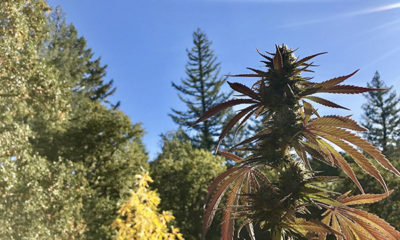
Joint Opinions
First Cannabis Industry Job Fair: A Sign Of Things To Come
Just like the iconic lines wrapping around recreational dispensaries in Denver on New Year’s Day, the nation’s first cannabis industry job fair, Cannasearch, brought over 1,200 people from all over the country to Colorado looking for a job in the booming newly-legal industry.
“People started showing up about 6 a.m. this morning for the doors opening at 11 a.m., the line is longer than a block now,” Tim Cullen told CBS news on Friday. Cullen co-owns two dispensaries in the state.
Many interviewed in line said they came from out-of-state and are just trying to get their foot in the door as the industry comes above ground.
“It had taken us a couple weeks to find enough candidates for these jobs we were hiring,” Todd Mitchem, Chief Revenue Officer of O.penVAPE told Forbes. “I looked at the paper one morning and saw a job fair was being advertised for another type of industry. I thought, ‘Gosh, we should do a cannabis job fair.’ I had never seen one before in Colorado.”
“It was a very humbling moment,” Mitchem remarked in regards to the turnout.
Humbling, but not surprising. NORML.org lists crop estimates for all 50 states and marijuana appears in the top ten of every single state’s cash crops. Cannabis is California’s number one crop, even more valuable than the state’s other big cash crop, wine grapes. Even in conservative Kansas, $67 million to $100 million of marijuana is grown every year.
This is in no way a “new” industry, just a newly legitimate one, and it should come as no surprise that Americans are embracing the legal industry, despite aging politicians (and Chris Christie) still fighting public opinion on the issue.
In 2009, a year after the financial collapse, about 48.6 million Americans were uninsured. With a majority of the healthcare market tied to employment, it’s no surprise that as unemployment soared so did the uninsured. Medical cannabis, at $40 to $60 per eighth of an ounce is an affordable alternative to prescription drugs for the uninsured.
California’s newest voters this year were born in 1996; the year voters approved the first medical cannabis initiative in the nation. Millennials promise to propel the issue even further into the future, establishing cannabis — industrial hemp, medicines and recreational use — as an industrial cornerstone of the 21st century.
For us, the concept of safe access to marijuana is accepted as a basic human right, not a newly won privilege.
We have filled colleges in record numbers and entered the worst job market since the Great Depression, making us the most over-educated and least financially stable generation in modern history. Many Baby Boomers lost their careers during the economic collapse in 2008 and have largely become unemployable in a younger, higher-tech job market.
Not only are there a lot of over-qualified people out of work or underemployed, these are also the same people who have championed laws legalizing and decriminalizing marijuana. These groups do not believe people should go to jail for marijuana, but many of them have turned to legal medical cannabis as insurance coverage dropped. Medical marijuana, while not being an overt alternative to a health insurance policy, largely has supplemented American personal healthcare and wellness regimens nationwide.
And, as we are learning more and more as we enter the Information Age, you can’t reverse public opinion once the cat is out of the bag, and it is.
The ability to find credible information on Google is no longer a skill honed exclusively by the young. Even those in states without any sort of marijuana legalization or decriminalization law have access to truth; marijuana is a safer substance than sugar, alcohol, tobacco and prescription drugs and arresting people for it does little to discourage its use. Prohibition was an expensive and disastrous failure.
People are excited because they finally see opportunity, the cannabis industry is proving to be a great economic equalizer as its very nature is diversity, a diversity not just of products and markets but of culture. This year, cannabis policy will be discussed favorably by any politician who wishes to get elected because we are the largest voting block in the nation and now we have a legal industry to back us.
























